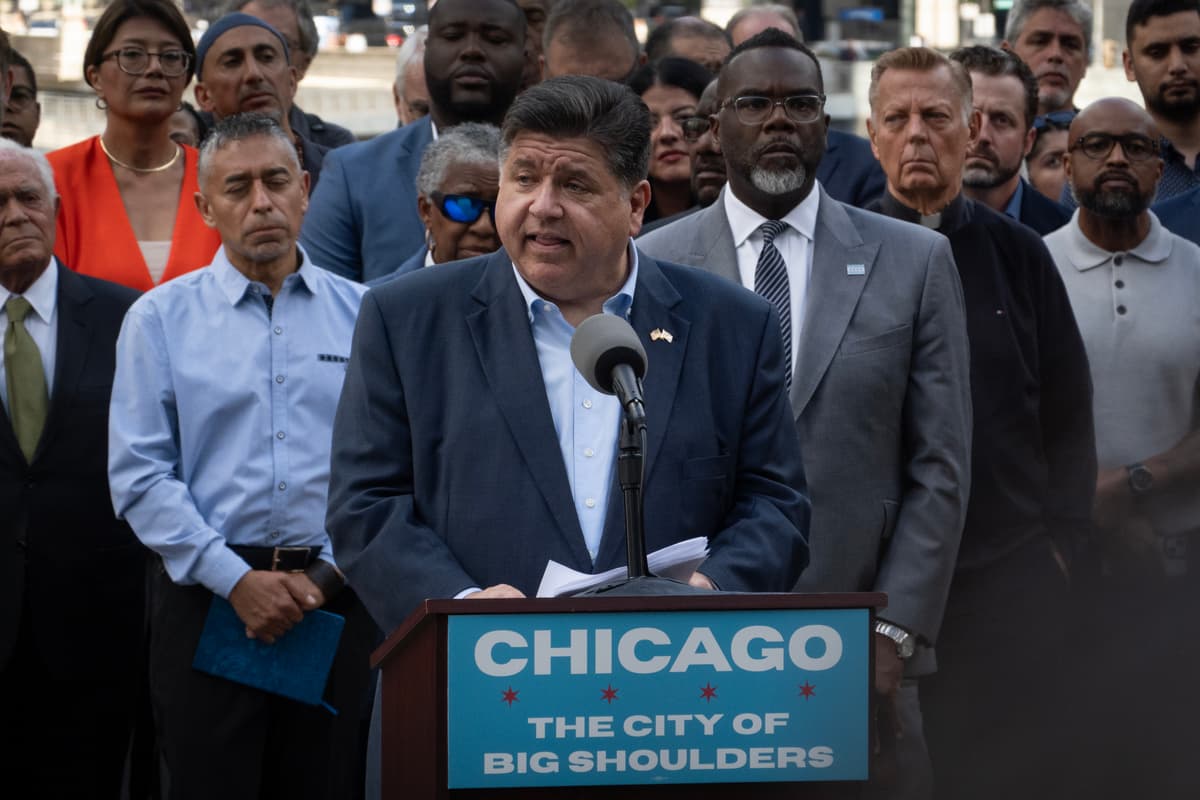Is the Supreme Court Harboring Doubts About Trump’s Deployment of Troops?
The Prairie State sows uncertainty on president’s power to call up the National Guard to enforce the law at Chicago, but there’s precedent to support the commander in chief.

Is the Supreme Court harboring doubts over President Trump’s authority to deploy the National Guard to restore order in America’s lawless cities? That’s the implication of the high court’s query in the case of Trump v. Illinois, in which the Prairie State is trying to thwart the commander in chief’s effort to call up the troops to uphold the law at Chicago. The Nine have a question about the legal rationale the president is using for the deployment.
It’s rare for the court to intervene in a dispute with such a narrow point of inquiry. The Nine are asking both sides in the case “to file supplemental letter briefs” dilating on the legal meaning of the term “regular forces.” The words feature in the federal law on which Mr. Trump is relying to send in the Guard to police cities like Chicago, Los Angeles, and Portland, Oregon. The filings, per the high court, are “not to exceed 15 pages,” and are due by November 10.
The high court query spotlights a provision in Title 10 of the United States Code. Section 12406 says that when “the President is unable with the regular forces to execute the laws of the United States,” he is authorized to “call into Federal service members and units of the National Guard of any State in such numbers as he considers necessary.” Lower-court judges, though, have doubted the president’s finding that lawlessness necessitated the intervention.
Riders of the Seventh United States Appeals Circuit, say, appeared to sympathize with the argument that “there is no rebellion or danger of rebellion in Illinois.” That’s the position of Governor JB Pritzker and the Windy City mayor, Brandon Johnson. A federal district judge at Chicago, April Perry, has barred Mr. Trump from deploying troops there pending resolution of the dispute in higher tribunals.
The Seventh Circuit, too, suggests sympathy with the view of the liberal local politicos that Mr. Trump is able “with the regular forces to execute the laws of the United States.” The Supreme Court, by zeroing in on this narrow point of legal definition, could be looking to find a way to resolve the dispute without, as lower courts have done, second-guessing the president’s judgment on whether the disorder is bad enough to warrant calling in the Guard.
Credit a Georgetown Law professor, Martin Lederman, with bringing this question to the forefront. A former Justice Department official, Mr. Lederman in a friend-of-the-court filing suggests that Mr. Trump and his solicitor general, John Sauer, are off the mark in how they interpret Section 12406. They “have mistakenly assumed,” Mr. Lederman avers, that the term “regular forces” in the law “refers to civilian law enforcement personnel.”
In this dispute, that’s a reference to Department of Homeland Security and Immigration and Customs Enforcement agents. Au contraire, Mr. Lederman says. “Regular Forces,” in his analysis, “are the regular, or ‘standing,’ military personnel serving in the United States Armed Services.” While Judge Perry takes a similar view, per Mr. Lederman, the question was not taken up by the circuit riders or in the other legal filings in the case before the Supreme Court.
Hence, one imagines, the Nine asking the president and Mr. Pritzker to clarify their position on what, exactly, the federal law denotes when it grants the president power to deploy the Guard. The berobed sages of our highest court could well prove skeptical of the president’s reliance on the military to restore law and order in America’s cities. Even so, these columns have found the law and the Constitution bolster Mr. Trump’s position.
Feature, say, the precedent from 1827, Martin v. Mott, that grants the president wide discretion in calling up the militia. As a matter of law, too, riders of the Ninth Circuit had the right idea when they reversed a district judge who blocked Mr. Trump’s deployment at Los Angeles. “Longstanding precedent,” the riders said, meant courts “must be highly deferential” to presidential power per Section 12406. It would be irregular, as it were, to rule otherwise.

